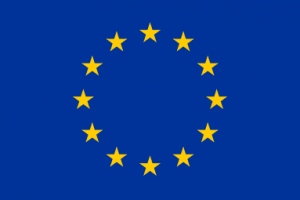City as a system, Energy production, Carbon neutrality, Technology, Transportation, Sustainability, City ecology, Futures thinking, Scientific expertise in policymaking.
The course was explicitly transdisciplinary: the main issue was the complex system of the city, with emphasis on energy and sustainability.
The language-widening approaches applied in the course design included discourse (especially through legitimate interaction with the city), imagination (through the imaginative and strange-making activities) and so on. For example, we began the course by imagining various even bizarre futures of the city to break out of strictly logical-structural thinking.
Finally, the course, “my city of the future”, was of course naturally future-oriented; the main idea of the course was to discuss the future of Helsinki. This entailed e.g. learning about and utilising concepts and methods from futures studies.
Students begin to conceptualise the future in a more positive, hopeful manner as compared to experiences before the course. Students gain inspiration from the experts challenging their ideas as well as from the learning activities on framing mindsets towards future changes.
Students show deeper consideration of topics as compared to before and start of the course. They indicate fuller consideration of the complexity of societal and environmental matters, shown through increased systems thinking in terms of the topics considered during the course and their developments during the learning process.
Students learn ways to understand and deal with uncertainty. They explore how to move from certain, hopeless futures with fixed mindsets towards more openness to alternatives and acceptance of the uncertainty of the future, whilst exploring the changes through analysis of agency and drivers of change.
Students consider causal effects of human decisions and actions upon nature and the biosphere (e.g. analysing the impact of different forms of energy production on sustainability, and understanding the infrastructural changes needed to create a more environmentally friendly future).
Session 1. Opening up the imagination using a modified version of the Futures Bazaar activity kit (available at https://situationlab.org/the-futures-bazaar/). Introduction into futures thinking: how it often fails to predict the future, yet one can improve and systematize one’s visions e.g. by distinguishing between thinking about possible, probable and desirable futures. Beginning to work in groups on posters to “pitch” a desirable future for Helsinki in 2050.
Session 2. Students worked on their visions for Helsinki in the year 2050, creating evocative future descriptions in small groups (in written or poster form).
Session 3. Presenting a first draft of the poster, and then discussing with four invited consulting experts (smart city anthropology; sustainability in engineering; climate change mitigation and risk management; energy systems).
Session 4. The students familiarised themselves with the publicly available “Carbon Neutral Helsinki 2035 Action Plan”. Then they met with one of the Action Plan’s authors to discuss the rationale for the environmental policies of the city of Helsinki, and ways of influencing the future of the city. A brief workshop on energy systems.
Session 5. Meeting the consulting experts again to get final feedback on the poster drafts, with a focus on adding quantitative and systemic perspectives.
Session 6. The course ended with a poster session and discussion between our students and a representative of Helsinki city Climate Team. Finally, we concluded with a retrospective look on the course as a whole.
